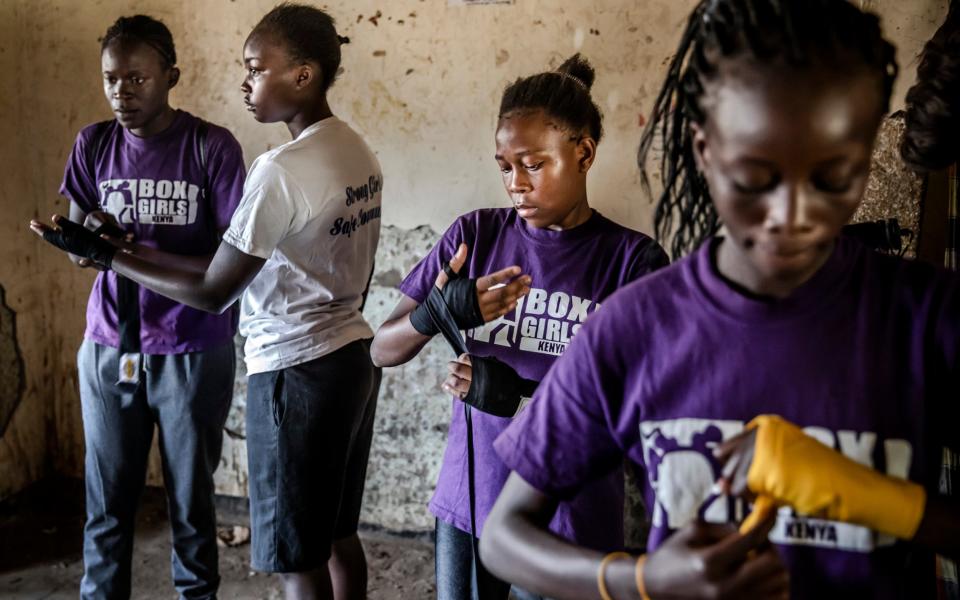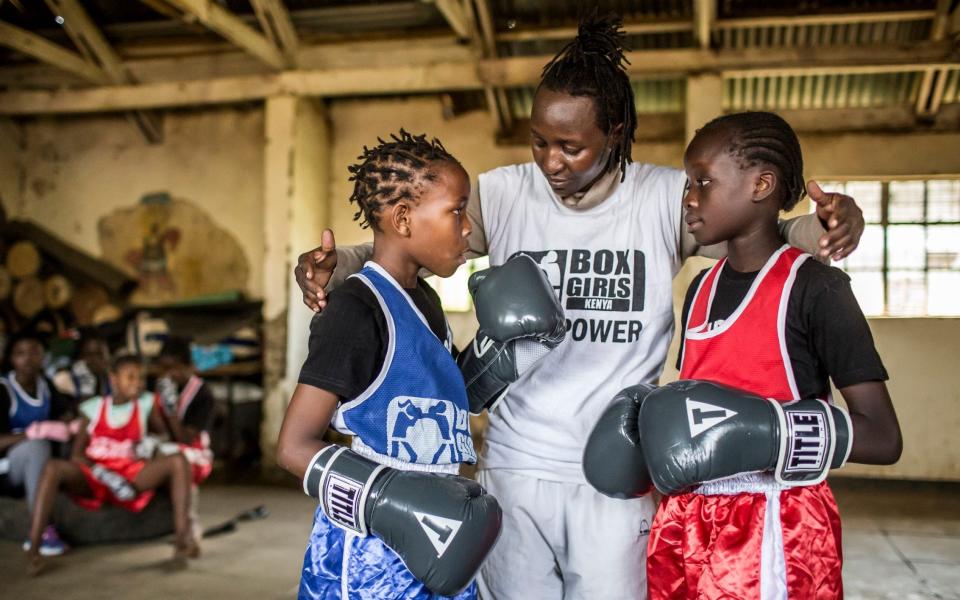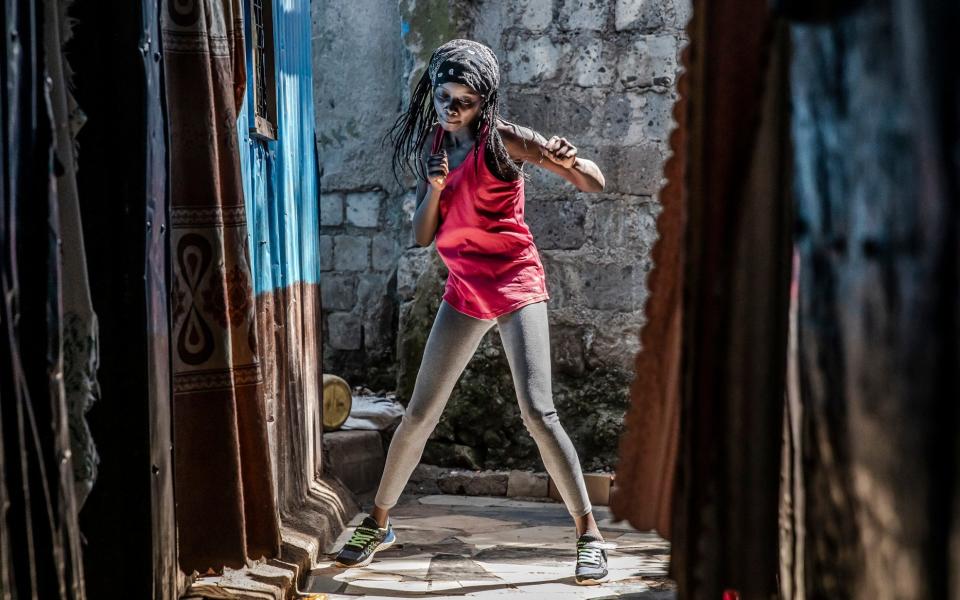How boxing is empowering girls in Kenya

Sarah Ndisi was in her late teens when the victim of an unprovoked assault: a man hit her in the face while she was jogging home. The incident proved to be the catalyst for her becoming one of Kenya’s top female boxers. She had previously been persuaded to give boxing a try by her cousin and had attended a few gym sessions, but finding herself in such a precarious situation motivated her to take the sport more seriously.
“I realised, if I had stayed in the gym, I would have had the skills to see the punch coming and been in a better position to defend myself,” Ndisi, 35, explains. “That spurred me to go back to the gym and learn those skills, to be able to defend myself against any man who wanted to take advantage of me.”
As well as enjoying a successful career – she has won 15 of 17 bouts in the super lightweight division – Ndisi passes on her expertise as a coach in the Boxgirls programme, which has been running for more than a decade and is one of the Sport for Good nominees at next month’s Laureus Awards.
Boxgirls works in marginalised Kenyan communities, using boxing to empower girls and young women while educating them on their rights and health issues. “Boxing has given me the life skills to become the leader I am today,” says Ndisi.

“In the ring, you are put under pressure by your opponent and it’s how you manoeuvre through that. Those skills you learn in boxing can be applied to day-to-day life. It’s learning about self-defence but also leadership and how they can use those skills to bring the change they want in their community.”
The organisation’s fundraising manager, Cynthia Moses, adds: “It enables us to tackle questions on gender-based violence and inequalities they experience in their communities. It’s an empowerment tool: giving girls the tools to bring positive change. Girls and young women come through the programme and want to pay it forward, to be an activist in their community and spark that change, to be role models.”
Emily Juma is a prime example of this. She got involved with a Boxgirls’ community outreach programme in Kariobangi, initially going along simply to keep a friend company but then engaging fully. Now, aged 22, she is one of the coaches delivering sessions.
There have been hurdles to overcome – her friends and family were not very supportive when she started boxing, viewing it as a male sport, but when “they realise the positivity it brings to your life, it is easy to convince others” – but her enthusiasm for the programme is evident during a video call with Telegraph Sport.
One particular passion is for educating girls on sexual and reproductive health, as well as stressing the importance of consent in a country that has high rates of adolescent marriage (around a quarter of girls are wed by 18) and pregnancy.
“A lot of girls we’re working with are from marginalised communities and it’s making them aware of their basic rights, their right to education and food and shelter,” explains Juma. “It’s also about their rights sexually when it comes to their body, which they may not understand.

One issue has been teenage pregnancies, with girls not being aware of their sexual rights or not being taught about saying yes or no, of giving consent, when to be touched. With our girls, we’ve experienced fewer teenage pregnancies.”
More than 90 per cent of the girls who have been through the Boxgirls programme said they had better knowledge of their rights, while 83 per cent reported “an increase in positive identity, self-awareness, self-worth and self-confidence”, according to statistics in the annual report.
Another figure Moses highlights is the 65 per cent of those in the programme who finish high school – in some areas of Kenya, it is less than 10 per cent.
'We want women to become whoever they want'
She shares one particular story to illustrate the impact Boxgirls can have: “Tabitha came into the programme at 10 and was very shy, but by 13 she had assumed a leadership position, helping other girls. She finished school and is now studying for a bachelor of commerce in accounting and working with us.
There is an element of service to humanity; girls are really invested and are empowered to change things. The programme builds the self-worth of women and they can take it to different levels. They have the opportunity to identify what the world is to them and what dreams they now have.”
Boxgirls itself has big dreams. Plans include running a national women’s boxing competition and a community radio show. Moses concludes: “We’re really proud of who we are and how far we’ve come. We have a lot of work to do and we want women to perceive they can become whoever they want.”

 Yahoo Sport
Yahoo Sport 





































